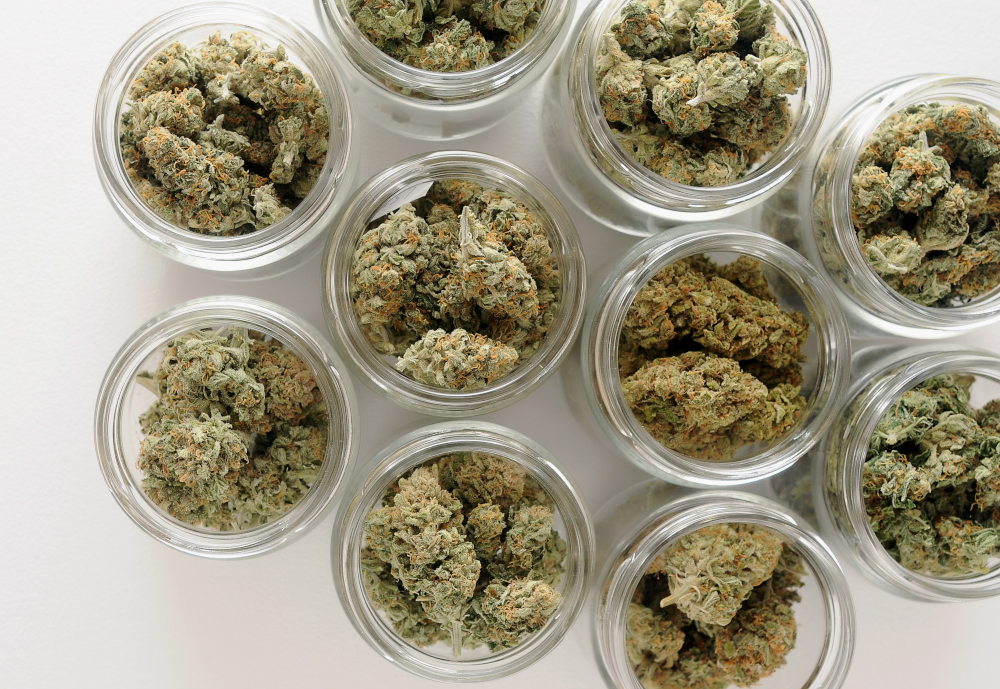Two states moved this week to crack down on hemp-derived intoxicating hemp products, with Gov. Brian Kemp signing a Georgia law into effect and Connecticut’s House of Representatives sending a proposed bill to the state’s Senate on an overwhelming vote.
The Georgia legislation amends current law to limit sales of CBD and intoxicating hemp-derived cannabinoid products to those over 21. The prohibition affects products intended to be ingested, absorbed or inhaled, according to provisions in the law.
Crucially, Senate Bill 494 (SB 494) also closes a loophole that has been the basis for “legal” sales of THCA, a non-intoxicating compound that can be made psychoactive.
THCA, which can be turned into delta-9 THC by heating or chemical manipulation, is one of several substances that dodgy producers in the U.S. are marketing as “legal hemp” due to a loophole in the 2018 Farm Act, which legalized hemp federally. The landmark bill failed to anticipate the development of THCA buds and other products containing psychoactive substances derived from industrial hemp.
Light it up, and . . .
When marketed as flower buds, THCA purportedly meets the Farm Bill’s 0.3% limit on total delta-9 THC and therefore meets the definition of federally compliant hemp, producers have contended.
THCA has minimal to no intoxicating effects on its own, but becomes psychoactive when it is exposed to heat, light, or certain chemicals. THCA can be decarboxylated by smoking or vaping, cooking or baking, or through specialized chemical processes
Other hemp-derived “high”-producing compounds such as delta-8 THC – the most popular of the intoxicating hemp substances – delta-10 THC, THC-O-acetate, HHC, THCP and others, start with hemp-derived CBD base material that is put through a synthetic process.
Redefining hemp
The bill’s key definitions are divided into “industrial hemp products,” those which are not consumable, and “hemp products,” which “means all products with the federally defined THC level for hemp-derived from, or made by, processing hemp plants or plant parts that are prepared in a form available for legal commercial sale, but not including food products infused with THC.”
“Process” or “processing” does not include “merely placing raw or dried material into another container or packaging raw or dried material for resale; or traditional farming practices such as those commonly known as drying, shucking and bucking, storing, trimming, and curing,” according to the language in the law.
SB 494 also:
- Updates rules for licensing, certificates of analysis, inspection, testing, retail operations and signage.
- Prohibits hemp compounds from being used in alcoholic beverages and food, except for gummies or extracts.
- Bars packaging that may be considered attractive to children.
Connecticut bill
In Connecticut, the House of Representatives passed House Bill 5150 by a 130-16 vote and sent the measure to the state Senate. If approved, the bill would:
- Amend the definition of high-THC products by raising the THC level per serving from 0.5 to 1.0 milligram of THC.
- Remove the differentiation of THC potency limits for various product types.
- Ban the sale of hemp-derived products in groceries, convenience stores and pharmacies.
- Allow social equity cultivators to partner with hemp producers and acquire licenses to make products outside “disproportionately impacted” zones.
- Include tribal reservations in those zones.

